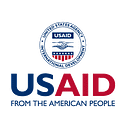USAID CATALYZE Collaborates with Cargills and Farmers to Modernize Agricultural Sector in Sri Lanka
Amidst the dynamic landscape of the global economy, Sri Lanka finds itself at a crucial juncture where the modernization of its agricultural sector, through the adoption of climate-smart agricultural practices, offers a pathway to unprecedented growth and opportunity. In the face of shifting market dynamics and increasing international trade, emerging economies like Sri Lanka are challenged to bolster their exports, enhance local production, and integrate farmers into global markets.
Across the globe, the agricultural sector grapples with the adverse effects of climate change, including rising temperatures, erratic rainfall, and extreme weather patterns. These challenges not only jeopardize crop yields but also amplify post-harvest losses and create conducive environments for pests and diseases. To fortify resilience and competitiveness in agricultural systems, investments in infrastructure, adoption of climate-smart technologies, and access to financing are imperative.
In a strategic partnership between the USAID CATALYZE Sri Lanka Private Sector Development (PSD) Activity and Cargills Food and Beverage (CFB) under its KIST brand, a pioneering pilot program has been launched to propel the modernization of Sri Lanka’s agricultural sector by promoting the adoption of climate-smart agricultural practices. The program’s primary focus is on enabling farmers to produce high-quality and climate-resilient tomatoes, thereby mitigating costs, and minimizing post-harvest losses. This collaboration aims to enhance Sri Lanka’s export capabilities and deepen its integration into global value chains. Locally, CFB will increase use of fresh local tomatoes to make KIST tomato sauce, which is a leading local brand.
A pivotal early step in the initiative was the signing of buy-back agreements between Cargills Food and Beverage Ltd and 40 farmers. These agreements not only ensure stable pricing and consistent production but also unlock a myriad of benefits, including access to technical assistance, adoption of climate-smart agriculture practices, opportunities for supply chain financing, and avenues for export. The pilot program also includes farmer training sessions, financial literacy workshops, and technology transfer initiatives aimed at supporting local production, empowering rural women, and strengthening community resilience.
The technology transfer will equip farmers to obtain high-yield tomato varieties through climate-smart agricultural solutions, such as drip irrigation, plastic mulch, fertigation units, and plastic crates. As the first harvest approaches in April 2024, the collaborative efforts of USAID CATALYZE PSD, CFB, and local farmers will not only bolster tomato production but pave the way for sustainable agricultural practices capable of withstanding the impacts of climate change. With the pilot program already engaging 40 farmers, its success has the potential for CFB to significantly expand its reach, benefiting more than 500 agri-micro, small, and medium-sized enterprises and unlocking new avenues of growth for the country’s agricultural sector.
